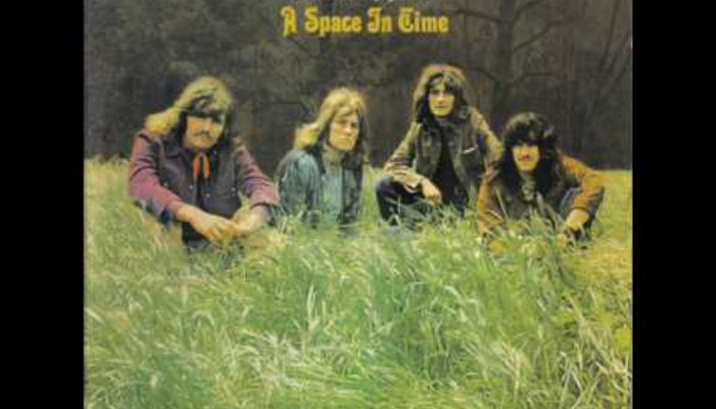Released in November 1971 by Chrysalis Records in England and by Columbia in the United States, A Space in Time is Ten Years After’s seventh album and, for many, the most important record of the English career. In addition, it is also the most successful job. The album marks a transition in the band’s career led by vocalist and guitarist Alvin Lee. In it, the incendiary blues (true to the roots of the style) present in the first works were left behind. The compositions are shorter, more direct and “commercial” than those present in the group’s previous albums.
Extremely cohesive and intertwined, the band managed to synthesize the transformations of the period in which the album was recorded. The overflow and innocence of flower power were gone, as if predicting a dip in more dark and delicate times. Space in Time, with its upbeat songs and full of sticky choruses, is like a last breath before the final journey through the darkest alleys of the seventies.
Most of his ten tracks are built not on guitar riffs, but on fingerings from Alvin Lee’s instrument. This change was probably due to the great success achieved by the first Led Zeppelin albums. Filled with songs with acoustic bases, they would have inspired Alvin to follow the same path in his new compositions. This hitherto unprecedented facet, where the guitarist is as brilliant as on his previous path, contrasts with the musician’s iconographic figure at the Woodstock Festival (1969), igniting a crowd in hallucinogenic ecstasy with his impish Gibson.
The disc opens with “One of These Days”, a hard blues that begins with a traditional structure that leads to a long instrumental section in its core, where the influence of the psychedelic groups from the turn of the sixties and early seventies is perceived. The beautiful and spatial “Here They Come” shows all the lyricism of Alvin Lee. “I´d Love to Change the World” is as follows. Its structure, alternating quieter moments with faster passages, stitched by the vocal full of personality of the leader of Ten Years After, transformed it not only in the biggest hit of the band’s career, but also in one of the most crystalline and brilliant records of that beginning of decade, where heroes were dead and the future was looking hazier every day.
The rugged “Over the Hill”, with a well laid out string arrangement, is another highlight. His melodies, despite (or precisely because they are) simple, still thrill, enhancing the lyrics that talk about drug addiction. The heavy rock “Baby Won´t You Let Me Rock´n´Roll You”, direct and simple, refers to the fifties and sounds totally out of place. The locomotive is back on track with “Once There Was a Time”, where you can clearly see the influence of country on the band’s sound, of course duly poisoned by the infinite energy of the group.
Psychedelic airs hit “Let the Sky Fall” hard, making the song sound like a kind of hypnotic space blues. “Hard Monkey´s”, on the other hand, despite the beginning and the acoustic passages, shows all the power of Alvin Lee as a riffmaker, clogging his fuzz guitar, as if paying homage, even if unconsciously, to Jimi Hendrix and Eric Clapton.
The album also offers us “I´ve Been There Too”, where the band explores, once again, the contrast between acoustic and electric, leading the listener through opposite sensations, and “Uncle Jam”, the only track not composed exclusively by Lee, and which is, as the title anticipates, a phenomenal jam between Alvin Lee, Leo Lyons (bass), Chick Churchill (keyboards) and Ric Lee (drums).
Although it cannot be framed in the classic format of the genre, A Space in Time is a blues album that finds new colors, uniting the style from the black corners of the interior of the United States with other musical genres. The result is a timeless work that has taken the Ten Years After career to a new level, once and for all writing the English among the great names in history.

